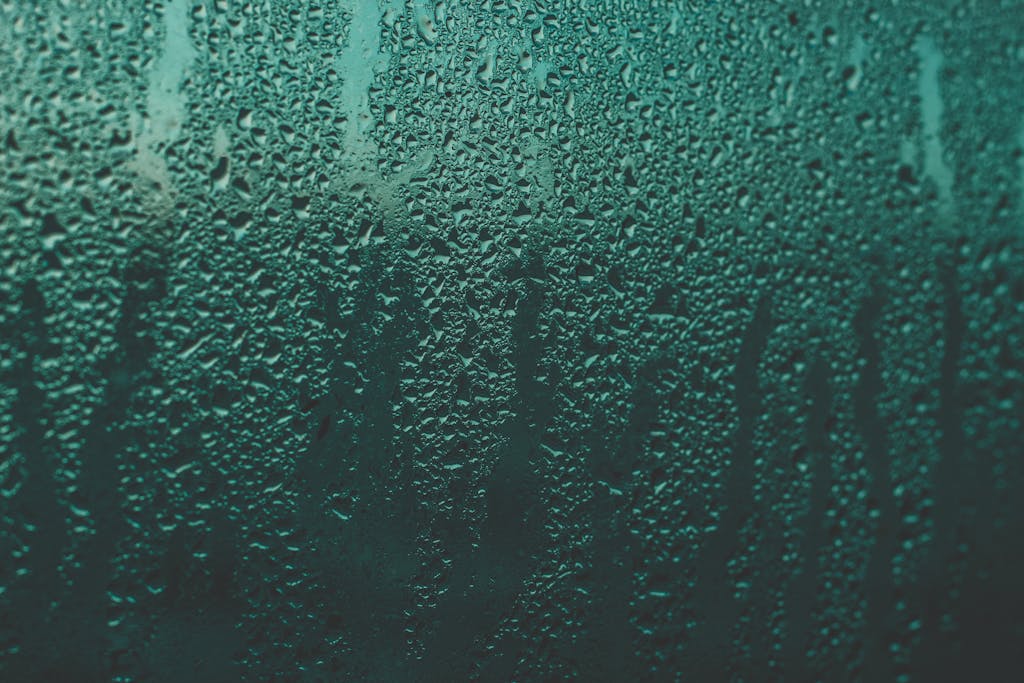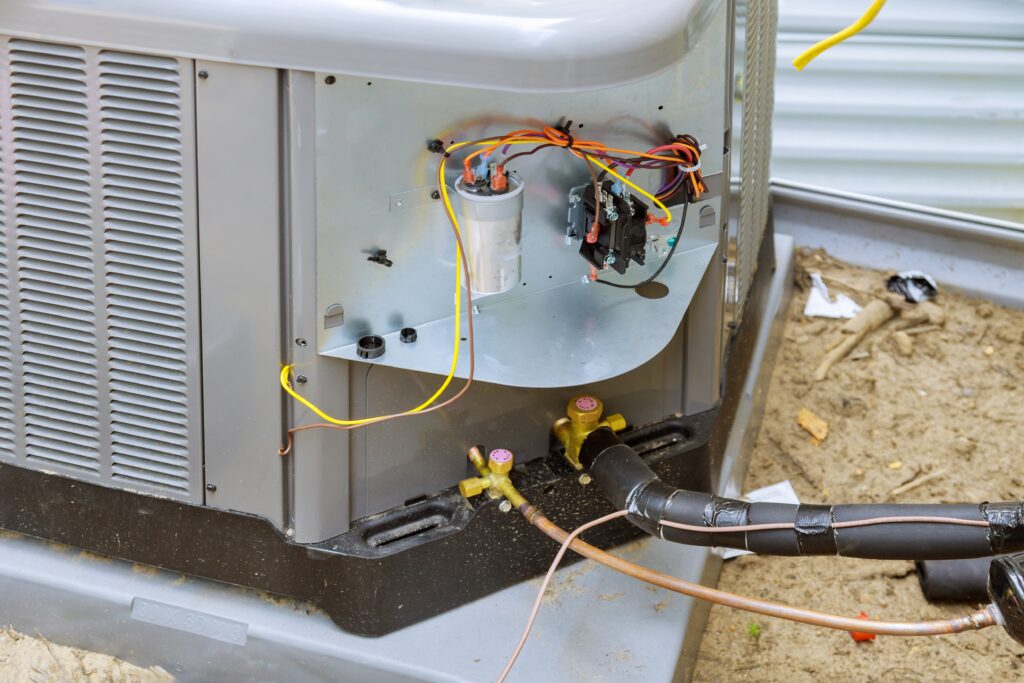The Real Cost of Ignoring Small HVAC Repairs
It is a common scenario for a homeowner in Olive Branch. You hear a new, faint noise coming from your air conditioner. Perhaps it is a slight squeal when it kicks on, or a a small puddle of water appears near the indoor unit. The system still works. The air is still cold. The temptation is to ignore it. Life is busy, and scheduling a repair for something that is not technically broken feels like a low priority. This decision, however, is almost always a costly mistake. Your heating and cooling system is a complex, interconnected machine. A small, seemingly minor issue is often the first warning sign of a much larger problem. Ignoring it does not make the problem go away; it simply gives it time to grow.
The “real cost” of putting off a small repair is never just the price of the original small part. The cost snowballs. It reveals itself in skyrocketing energy bills, in the failure of much more expensive components, and in the premature death of an appliance you rely on every day. It can even impact your family’s health and your home’s safety. A small issue is a symptom, and the underlying disease will only get worse. At Hometown HVAC and Refrigeration, we have seen the expensive consequences of this gamble. Understanding the full scope of the risk is the best way to protect your investment and your comfort.
The Financial Snowball Effect
The first place you will feel the cost of a neglected repair is in your monthly utility bills. An HVAC system is designed to run as a balanced, efficient machine. When one part is struggling, the entire system must work harder and run longer to achieve the same result. That squealing sound might be a worn belt. A worn belt causes the blower fan to operate at a less than optimal speed, forcing the whole system to run for an extra ten or fifteen minutes every cycle just to satisfy the thermostat. That extra runtime adds up, day after day, becoming a significant and unnecessary expense on your next energy statement.

This loss of efficiency is only the beginning. The real financial danger is the cascade failure. A single, failing component puts immense stress on other, more expensive parts. Think of a small, failing capacitor on your outdoor unit. This is a relatively inexpensive part. Its job is to give the compressor and fan motor the electrical jolt they need to start. When it weakens, the compressor struggles to turn on. It will strain and draw excess electricity, generating destructive heat. What began as a minor electrical issue now threatens the most expensive part of your entire system: the compressor. The cost of ignoring the small capacitor repair is a complete compressor failure, turning a small service call into a massive replacement job.
The same principle applies to the simplest maintenance task. A clogged air filter is a perfect example. It is a minor issue, easily fixed. When ignored, it forces the system to fight for air. This strain can overheat the blower motor, burning it out. It also blocks cold air from moving across the evaporator coil. This can cause the coil to freeze solid, turning into a block of ice. When that ice thaws, it overflows the drain pan, potentially causing significant water damage to your home. That one, simple filter, when ignored, created a chain reaction that destroyed a motor and caused a flood. The cost is never isolated.
Compromising Your Home’s Safety
While the financial costs are high, the safety risks associated with ignoring HVAC problems are far more serious. Your system is not just a comfort appliance; it is a powerful machine that uses high voltage electricity and, in many cases, natural gas. A small electrical issue, like a frayed wire or a failing motor, is a significant fire hazard. That “burning” smell you only notice for a second is not normal. It is often the smell of wire insulation melting or a motor on the verge of seizing. Continuing to run the unit in this condition is a serious gamble.
For homes with gas furnaces, the stakes are even higher. The heat exchanger is the component that separates the hot combustion gases from the air you breathe. Over time, a struggling furnace can develop small cracks in the heat exchanger. This is a critical failure. These cracks can allow carbon monoxide, a colorless, odorless, and deadly gas, to leak into your home’s air supply. A “small” problem like a dirty burner or a faulty ignition might just seem like a performance issue, but it can cause conditions that lead to this kind of critical failure. Regular inspections are essential to catch these dangers before they become life threatening.
Water damage is another significant risk. That “small” puddle near your furnace or air handler is typically a clogged condensate drain line. It is a very common and simple repair. If you ignore it, the drain pan will overflow. This water can saturate drywall, ruin ceilings, and warp flooring. The immediate damage is bad enough, but the longterm consequence is even worse: mold. In the humid climate of the Mid South, it only takes a short time for mold to take root in damp drywall. This introduces a serious health hazard into your home, one that is expensive and difficult to properly remediate.
The Decline in Home Comfort and Air Quality
Before the system fails completely, you will experience a noticeable decline in your daily comfort. A system with a “small” problem is a system that cannot perform its job correctly. You will begin to notice hot and cold spots in different areas of the house. The system, which used to keep your home at a perfect temperature, now struggles to keep up on hot Olive Branch afternoons. You may find yourself constantly adjusting the thermostat, but the home never feels truly comfortable.
This is especially true with humidity control. A primary job of your air conditioner is to remove humidity from the air. A system that is struggling, perhaps due to a slow refrigerant leak, will lose its ability to dehumidify effectively. The air may feel cool, but it will also feel damp, sticky, and unpleasant. This creates a less comfortable indoor environment and can even make you feel the need to lower the thermostat further, which only wastes more energy and puts more strain on the failing system.

The musty or dirty smell from your vents is another warning sign that impacts your health. This is often caused by bacteria and mold growing on a dirty evaporator coil or in a clogged drain pan. When you ignore this smell, you are allowing your HVAC system to actively circulate mold spores, allergens, and other contaminants throughout your entire home. What began as a simple cleaning issue now directly contributes to poor indoor air quality, which can aggravate allergies, asthma, and other respiratory conditions. The air you breathe is being compromised.
Shortening Your System’s Lifespan
Your HVAC system is one of the most expensive and critical investments in your home. A new installation represents a significant financial commitment. With proper care, modern systems are built to last fifteen to twenty years. Ignoring small repairs is the fastest way to shorten that lifespan. Every time your system runs with a worn belt, a failing motor, or a clogged filter, it is operating under stress. This cumulative stress accelerates the wear and tear on every single component, from the smallest bearings to the main compressor.
Think of it like driving your car with the oil light on. The car might still run for days or weeks, but you are causing irreversible damage to the engine. The same is true for your HVAC. That small, unaddressed problem might force your system to endure a whole season’s worth of wear and tear in just a few months. A system that was designed to last two decades may now be headed for a complete failure in just ten or twelve years.
This leads to the ultimate “real cost” of ignoring repairs: premature replacement. The price of putting off a minor service call is eventually paying for a brand new system years before you should have to. This cost is avoidable. When you compare the price of a minor repair to the thousands of dollars required for a full system replacement, the math is clear. Proactive service is always the more intelligent financial choice. It protects your investment and ensures you get the full, useful life out of the appliance you paid for.
Common Warning Signs You Should Never Ignore
You can protect yourself by learning to recognize the earliest warning signs. These “small” problems are your system’s way of asking for help. If you notice any of them, it is time to call a professional. Strange noises are a primary indicator. Squealing or screeching sounds often point to a failing belt or bad motor bearings. Grinding or scraping noises can mean a broken motor mount or a failing component. A loud bang or clank when the unit turns on or off can signal a problem with the compressor or a loose part.
Odd smells are another critical warning. A musty, dirty sock smell means it is time to have your coils and drain system inspected for mold and mildew. A sharp, burning electrical smell is an emergency. You should shut the system off immediately and call for service, as it indicates a motor or wiring problem. For gas furnaces, the smell of rotten eggs is a sign of a potential gas leak. Leave the home immediately and call your gas company.
Finally, pay attention to performance changes. If your system starts short cycling, meaning it turns on and off every few minutes, it is a sign of a problem. If the system runs constantly and never seems to reach the temperature on the thermostat, it is struggling. Visible issues like ice buildup on your refrigerant lines, water puddling around the unit, or a circuit breaker that keeps tripping are all clear signals that your system needs a professional diagnosis.

A small HVAC problem is never just a small problem. It is a warning sign. Ignoring it is a gamble with your money, your safety, and your comfort. That minor noise or small leak is the start of a cascade, a financial snowball that will only grow. The real cost is found in utility bills that are 30 percent higher, in the catastrophic failure of a compressor, in the health risks from mold, and in the five or ten years of life you lose from your expensive system.
Do not wait for a minor issue to become a major, expensive breakdown. The most cost effective solution is always to address problems when they are small. If you live in Olive Branch or the surrounding Mid South communities and notice your HVAC system is acting up, call Hometown HVAC and Refrigeration. Our professional technicians can diagnose the problem honestly and fix it correctly, protecting your home and your investment for years to come.
